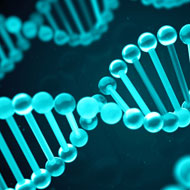Study reveals flaws in long-read DNA technology

The researchers suggest that data produced by long-read technologies should be interpreted with caution.
Researchers at the University of Edinburgh’s Roslin Institute have warned of flawed data from long-read DNA readings.
New technologies that can read long strings of DNA are up to 99.8 per cent accurate. But in a genome of more than three billion letters, this could equate to millions of errors.
Scientists say that such mistakes could falsely suggest that a person has a genetic make-up that heightens their risk of a certain disease. Data produced by these technologies should, therefore, be interpreted with caution, the team suggests, as it could create problems for analysing genetic information from people and animals.
“Long-read technologies are incredibly powerful but it is clear that we can’t rely on software tools to correct errors in the data – some hands-on expertise may still be required,” explained Professor Mic Watson of the Roslin Institute. “This is important as we increasingly use genomic technologies to understand the world around us.”
Writing in the Nature Biotechnology, the researchers describe an analysis of three recent studies reporting human genome sequences from long-read methods. They found that the data contained thousands of mistakes, even after using corrective software.
The team writes that such errors could have major implications if the methods are used in clinical studies to diagnose patients.
“Long-read technologies are incredibly powerful but it is clear that we can’t rely on software tools to correct errors in the data – some hands-on expertise may still be required,” said Professor Mick Watson, of the University of Edinburgh’s Roslin Institute.
“This is important as we increasingly use genomic technologies to understand the world around us.”



 The latest
The latest